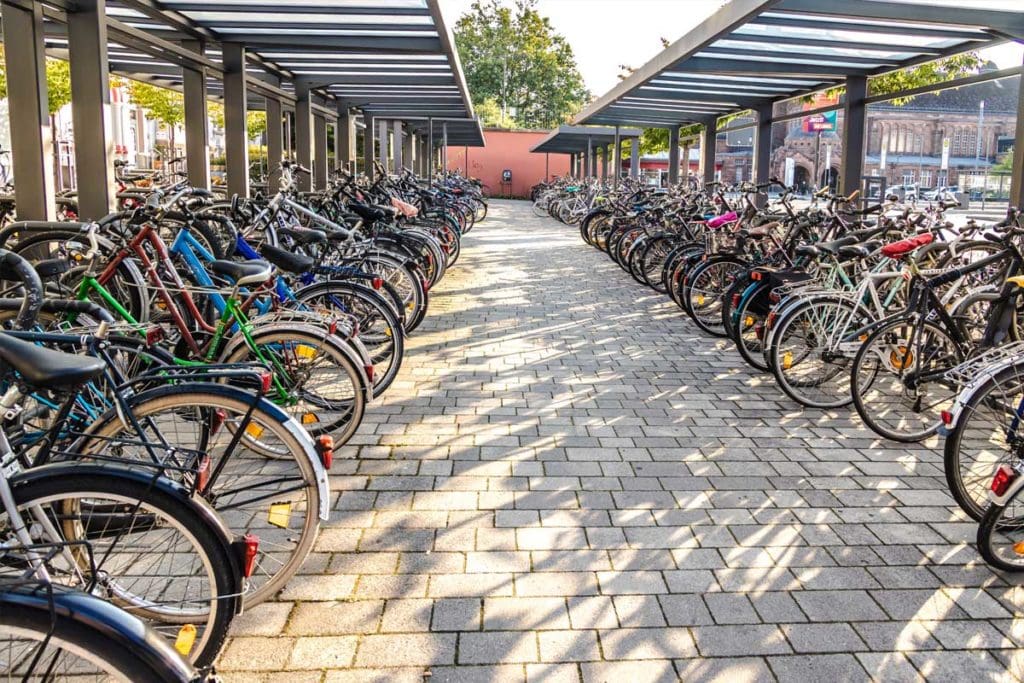Bicycle Imports Still Near Record Levels

Canberra, ACT
Australia’s bike import figures for 2021/22 appear set to remain near the lofty numbers set during last year’s record-breaking period.
While import data for June 2022 is yet to confirmed, figures for the previous 11 months are enough to confirm the 2021/22 financial year will finish second only to the previous financial year’s all-time record for bicycles imported to Australia.
A total of 1,471,639 bicycles were imported from July 2021 to May 2022. That’s already the second highest year ever.
Once June figures are added, it’s likely the year total will be in the range of 1,560,000 to 1,580,000.
That will be just over 100,000 units down on 2020/21’s record of 1,690,637 units. But it’s still several hundred thousand units up on the previous four ‘pre-covid years’, which fluctuated in a narrow band between 1.13 million and 1.28 million units.
Unlike the end of the 2020/21 financial year, most wholesalers and retailers are now bursting at the seams with stock. Clearly the tap is still turned on full blast, but the outflow of sales has definitely slowed, helped in part by the wettest winter on record along much of the densely-populated east coast, including Sydney.
Due to current overstocks and slowing demand, I would expect to see import numbers drop significantly for the current 2022/23 financial year.
Within the import figures, which are only broken down into adults and kids’ bikes, the share of kids’ bikes has increased. A total of 503,163 kid’s bikes were imported during the first 11 months of 2021/22, which is slightly up on even the previous record year.
We only need another 17,053 kids bikes in the June import data for 2021/22 to be the all-time record year for kids’ bike imports.
That means adult bike imports have fallen, both as a percentage of total imports and in terms of units. But it’s a different story for average unit value for adult bikes. That’s soaring to record levels – as high as $466.45 for March 2022, which was the first month ever over $400.
April and May have held this trend at $434.60 and $454.92 respectively. Even kids’ bikes have exceeded $200 average value for the first time ever. The overall average value, which for years has sat in the low $200s range, is now in the high $300s. It’s important to remember when seeing these relatively low prices that these are ‘FOB’ prices from the exporter, before freight, wholesale and retail markups and Australian tax are added. So retail prices are close to twice as high in some categories.
I think there are at least four factors contributing to this recent higher unit value trend. Firstly, higher costs from all bicycle manufacturers, who have been passing on higher raw materials and component costs. Secondly, higher freight costs, which although down from their stratospheric Covid peaks, are still way above their pre-Covid baseline. Thirdly, in the case of adult bikes, the increasing prevalence of e-bikes, which have a higher unit value. Finally, the Australian dollar has fallen slightly in recent months, particularly against the US dollar, making our imports are more expensive in Australian dollar terms.
Countering these trends, there is still a shortage of high-end components, resulting in ongoing short supply in Australia of some bike categories such as high-end road, gravel, full-suspension MTB and some e-bike categories. If these categories had been readily available to import, the average unit price might have been even higher.
Import data is also collected for P&A imports of inner tubes, tyres, lights, frames, forks, rims, saddles, and pedals & cranks (combined). In all cases, 2020/21 was a record year, jumping by as much as 73% over the previous year for saddles and 30% to 40% for most other categories.
With only June’s data remaining to be added to complete the 2021/22 figures, imports of frames, forks, and rims have already exceeded the full year totals for 2020/21. The other categories are all set to finish the year slightly lower, but still well above pre-Vovid levels.
The data used in this article is collected by Australia Customs and collated by Bicycle Industries Australia (BIA) who kindly provide this information as a service to the trade.
